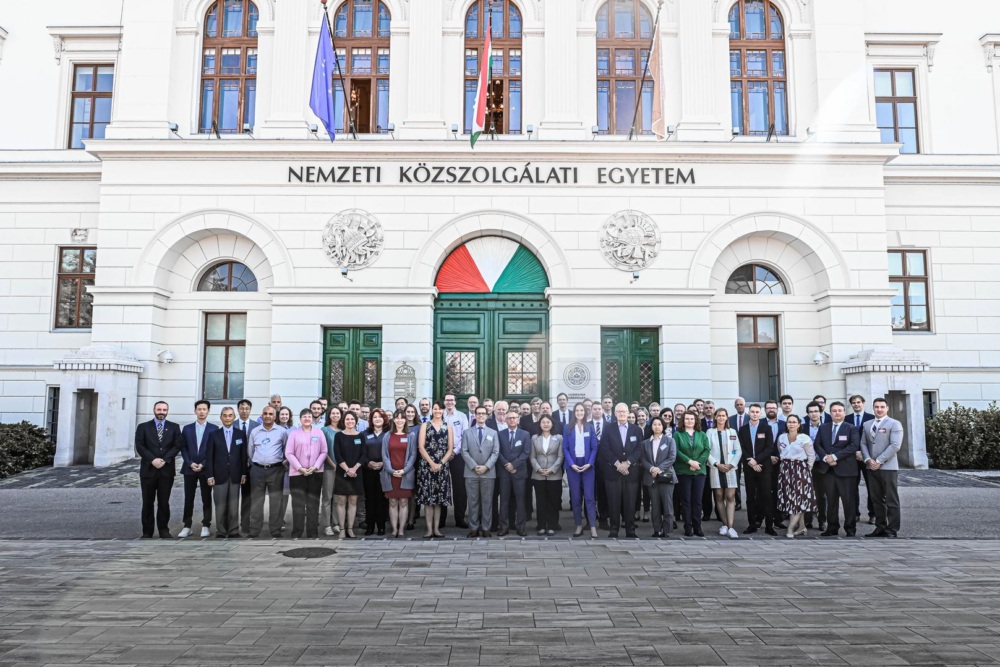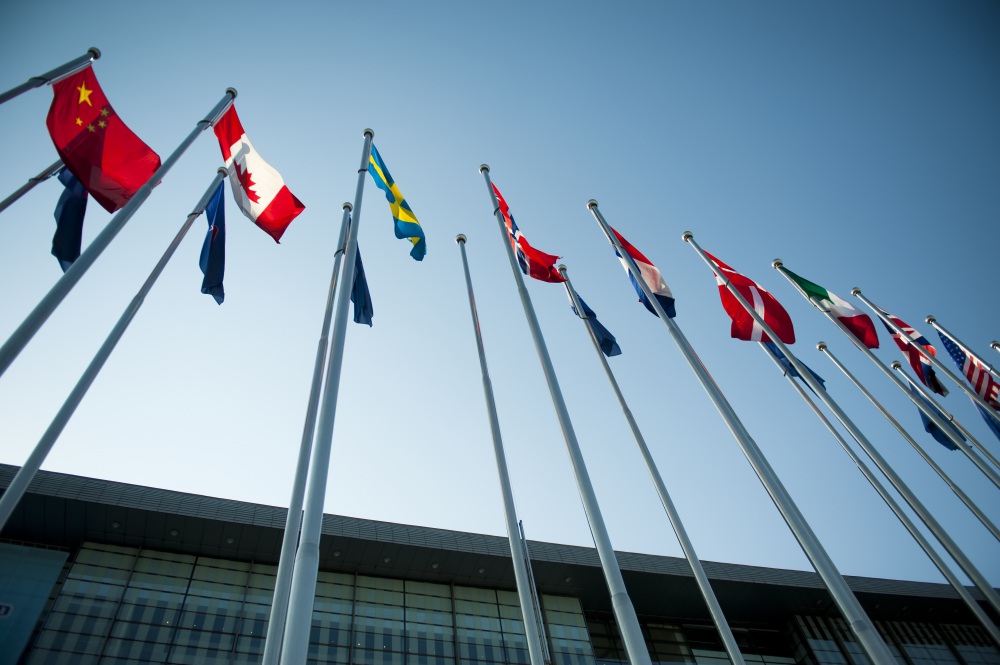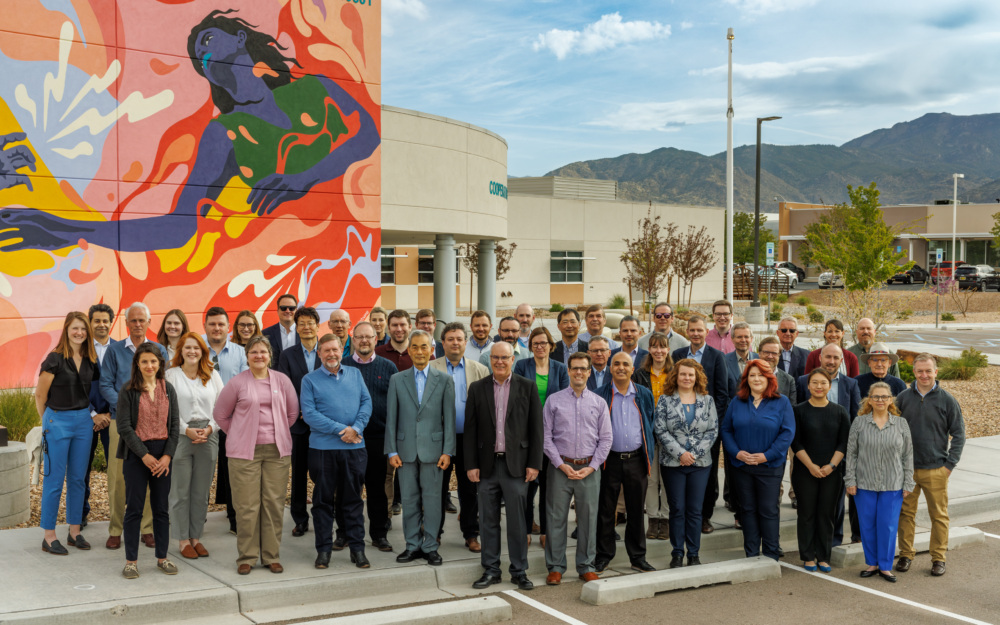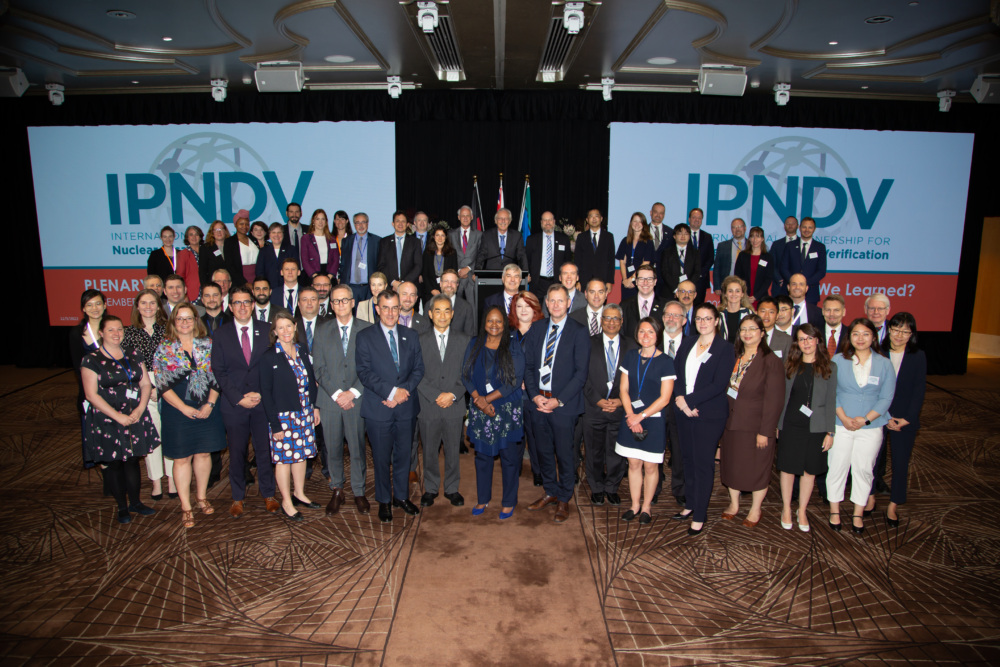
IPNDV Convenes in Budapest for Working Meeting
The International Partnership for Nuclear Disarmament Verification (IPNDV) convened its most recent working meeting in Budapest, Hungary from September 4-8, 2023.
The International Partnership for Nuclear Disarmament
Verification (IPNDV), an ongoing public-private partnership between the U.S.
Department of State and NTI, was recognized more than 35 times by partners and
non-partner countries in statements and reports submitted to the 2019 Non-Proliferation Treaty Preparatory Committee Meeting
(NPT PrepCom). The NPT PrepCom was hosted over two weeks between April and May
at the United Nations Headquarters in New York. The full list of statements and
reports is below. More about the IPNDV can be found on the partnership’s
website: www.ipndv.org.
Within its Cluster I statement, Argentina
recognized the work of the Partnership as a “welcome step” toward developing
verification capabilities.
Australia’s national report reaffirmed “its commitment to
apply the principles of irreversibility, verifiability and transparency in
relation to the implementation of its Non-Proliferation Treaty obligations,”
which included its active role in IPNDV working groups. A statement on
disarmament also announced Australia’s
support for the Partnership.
Belgium’s
statement on Cluster I issues of nuclear disarmament addressed both its
participation in IPNDV as a way to pursue technical solutions for disarmament
issues, and its upcoming demonstration on nuclear material detection.
Bulgaria
welcomed the work being done by the Partnership in its statement on
disarmament.
Canada’s
national report acknowledged its active engagement in IPNDV working groups and
papers.
A working paper submitted by the European Union showed
its support for nuclear disarmament verification programs, mentioning IPNDV by
name as an example. In its general statement, the EU announced
its support for the Partnership as well, and reiterated that sentiment in the EU statement
on Cluster I issues.
In a statement on nuclear disarmament, France
encouraged countries to participate in IPNDV.
Finland’s
statement during general debate mentioned both its participation in IPNDV as
well as the Joint Working Group meeting it hosted in Helsinki.
Germany’s
statement recognized “the valuable work undertaken” by IPNDV. Germany’s
subsequent Cluster I statement welcomed the progress being made by the
Partnership.
A Greek
statement anticipated progress on safeguarding “bilateral and multilateral
strategic dialogue” modeled after the activities of IPNDV.
A statement by Hungary
in the general debate acknowledged its participation in the Partnership. A
further Cluster I statement listed Hungary’s
interest in IPNDV’s work on capacity building and the technical aspects of
verification.
In the Inter-Chair
working paper, the Netherlands and Poland wrote that the states parties
acknowledged the “various practical contributions” that the Partnership had
provided for the field.
Italy’s
national report tied its involvement in IPNDV to its support for nuclear
disarmament verification initiatives, as a tool that helps “to build trust and
confidence among nuclear- and non-nuclear-weapon states.” Italy
reiterated this sentiment and further expressed its support during its Cluster
I statement.
Japan’s
national report detailed its involvement in the Partnership, including hosting
a plenary meeting in 2016, and acknowledged IPNDV as “a strong vehicle for
practical and concrete measures to realize the goal of a world free of nuclear
weapons.” Additionally, Japan
commended the work of the Partnership in its statement on Cluster I issues.
A statement by Latvia
recognized IPNDV as “one of the few examples that have made a substantial
contribution” towards successful disarmament architecture.
In its national report, the Netherlands recognized
its continued contribution to the Partnership, especially its role in working
groups 1 and 4. The Netherlands also announced that it would host a working
group meeting and mentioned both its financial support of NTI and the
commissioning of “a verification-related research project on high-explosive
detection methods by the Netherlands Organisation for Applied Scientific
Research.” During a Cluster I statement, the
Netherlands again mentioned their participation in IPNDV.
Norway
issued a general statement calling for a “nuclear disarmament verification
trust fund,” to offer financial support for countries interested in being
involved in activities such as IPNDV.
Poland
issued a statement on its participation and noted that the activities of the IPNDV
“underpin nuclear disarmament efforts” due to their emphasis on solutions,
international cooperation, and confidence building among Partners. During its
Cluster I statement, Poland expressed
hope that the Partnership would continue
its work “‘in the spirit’ of the NPT.”
The
Quad released a statement that it looked forward to interacting and sharing
technical information with IPNDV.
The Republic
of Korea issued a statement during general debate confirming its
participation in the Partnership, mentioning that it hosted a working group
meeting in 2018, and announcing its commitment “to working with Partners to
present concrete deliverables by 2020.” In its Cluster I statement, the ROK
commended the IPNDV as a “good example of cooperation between nuclear and
non-nuclear states,” and was thankful for the “substantial progress” the Partnership
had made.
Sweden
listed building on lessons learned from IPNDV as an “essential step” in
controlling technology and materials related to nuclear weapons. Sweden’s
statement on nuclear disarmament described its desire for further work and
encouraged others to join.
Turkey
acknowledged its participation in the IPNDV, based on multilateral verification
being “necessary for the realization and maintenance of a world without nuclear
weapons.” Turkey
reiterated this sentiment in its Cluster I statement.
In its national report, the United Kingdom discussed
its participation in the Partnership, including hosting a plenary meeting and
giving tours of RAF Honington, engagement the UK described as assisting the
“continued success” of the IPNDV. During its Cluster I statement, the United
Kingdom tied its role in the IPNDV to a desire to develop “nuclear
disarmament verification solutions.”
During its Cluster I statement, the United
States announced its strong support for the IPNDV, and lauded the
Partnership for showing “real, tangible progress” towards its goals.
The
Vienna Group’s working paper acknowledged the Partnership for the work that
it has done “to develop credible measures and build global capacity for
verifying nuclear disarmament.”
Sign up for our newsletter to get the latest on nuclear and biological threats.
The International Partnership for Nuclear Disarmament Verification (IPNDV) convened its most recent working meeting in Budapest, Hungary from September 4-8, 2023.
The International Partnership for Nuclear Disarmament Verification (IPNDV) convened its most recent working meeting in Albuquerque, New Mexico from April 24-28, 2023, hosted by Sandia National Laboratories.
The International Partnership for Nuclear Disarmament Verification (IPNDV) held its annual plenary meeting in person from December 5-9, 2022, in Sydney, Australia. This meeting of the IPNDV was generously hosted by the Australian Safeguards and Non-Proliferation Office (ASNO).


